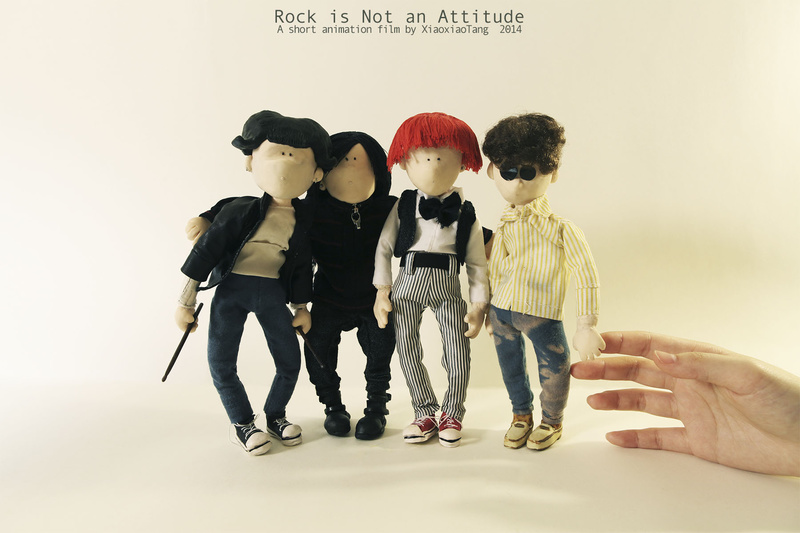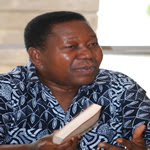ROFFEKE: I loved your interview on Shortcloseup.com so for this ROFFEKE interview, I would like to ask some follow-up questions:
In the interview, you mentioned that you directed a “part theatrical performance part radio play based on Ray Bradbury’s short story ‘Kaleidoscope’”. Please share some of your favourite memories/lessons you learned from that early directorial experience.
EGOR: Since it was my first case of consciously directing something there was a lot of mini observations and conclusions. But there was one main thing I realised:
The process and the product are two different universes.
A bit of context: in school we had this yearly event where every class would prepare a 15-20 minute theatrical piece. Officially it wasn’t a competition but in reality for a month the whole school turned into a Game of Thrones kind of ball of intrigues, treasons, plotting. Everybody spying on others and trying to figure out what they were preparing and do something for their piece to look better. And while everybody was so in this process of gossiping and doing small-time politics I was in my room at the computer trying to realise what the hell needs to be done to make this piece work. You know, directing stuff. And that contrast between the two “layers” of the process can be seen in all sorts of projects, no matter how big. People can get too excited by everything that happens “around” the production process (who wouldn’t be? it’s always such an exciting emotional rollercoaster) that quite often they forget that having an exciting time on set (or near it) does not equal making a great film (or anything, really). And you have to always be able to turn off all the side-effects of the process and look at the product with fresh eyes and see whether it’s working or not.
ROFFEKE: The first script of “The Bluestocking - Never Ready” was ditched. What were some elements/scenes that you loved about it?
EGOR: I loved the whole thing.
Short story long.
I am that kind of a director who can’t work on a music video without knowing and feeling the musician(s) first. I usually torture them with several-hour talks and then ask them hundreds of stupid questions in messengers (I start to draft ideas before all this but you can really see how they become better as I learn new things about the band and the song). And this first version of the script appeared from all those meetings and talks.
The story was a very dark tale set in a fantasy version of early XX century (think Tim Burton type setting but without any hint of humour). It was about a girl who went through hell in her childhood, then later became a showgirl superstar. When she fell in love with a man she couldn’t trust him and she started to have paranoid suspicions that he was going to hurt and betray her. The ending is as dark as you can imagine it. Visually it was a number of “static” scenes. The camera would fly through them, revealing details and telling the story through that. If you know the Spike Jonze’s 2-minute short “The New Normal” for MedMen – it’s pretty much how we wanted to do it.
That answers the question but I wanted to add a small P.S. to that.
After it became clear that the budget for realising that idea the way we wanted would be gigantic I had to start from scratch. Around that time the guys said “Hey, this is our debut video. Maybe let’s introduce ourselves to people, let’s make it about us”. That’s when all the torturous talks and my stupid questions came in handy: if I hadn’t gotten to know the guys enough I just wouldn’t be able to come up with the stories that you see in the video.
ROFFEKE: "Zero" hand-crafted all the Steampunk objects. What was your process of collaboration in bringing to life these objects? Were the objects part of the script or were they conceptualized independently? How long did it take to craft the objects? Which Steampunk influences did you refer to, if any?
EGOR: Some of the devices were in the script from the very beginning because they were essential for the stories (like, the saxophonist’s “charger”, the “head jukebox” and the camera with the built-in printing machine). Some objects appeared in the video just because “Zero” said “I also have this, do you want it?” and I went “Are you kidding?! This is even better than what I could ever think about!” That’s how the costumes for the two “guitar engineers” appeared, for example.
Some of the “essential” objects were combinations of stuff that he already had but some had to be made from scratch (the “head jukebox”). Working with “Zero” was pretty easy. He is one of those guys who have a pretty solid style but at the same time great imagination and so it’s not a problem for him to think of something outlandish and you always know it will look awesome.
However, there was a moment when it backfired a little bit. When I briefed “Zero” I described the saxophonist’s charger as a rusty “infinite engine” (that’s what these wiggly things are called in Russia’s toy stores) and it seemed clear to him and it was probably the easiest thing to make from the whole list. But on the day of the shoot he brought the device he made – and it was a totally different thing altogether. It looked great but it was not doing what it’s supposed to do (which is move on its own and “create” energy this way). Turned out “Zero” didn’t know what “infinite engine” was and just came up with one (it’s not his fault, of course; it was my problem that I didn’t make it clear enough during the briefing). So we ended up not having a vital prop on the day of the shoot. So some people from the producers’ team went and bought a couple of those wiggly “infinite engines” and made them look rusty on the set.
I think all in all “Zero” spent several days crafting the things for us. He works pretty fast. As for references I think mine were “The city of lost children” and a little bit of “Brazil” but like I said, “Zero” had a pretty solid style he works in. So mostly he was his own stylistic reference.
ROFFEKE: You mentioned that your social anxiety could be a reason that you are a “terrible festival person”. What advice would you offer a new filmmaker who struggles with social anxiety?
EGOR: I have two opposite options for advice here.
Option #1: I don’t remember who said it but here goes: “Make your work so good that they can’t ignore you” and so you won’t have to approach anyone. The downside of this advice is that even if your work is bloody amazing you would still achieve a lot more with it if you socialized and networked. So I guess you will still need to consider option #2.
Option #2 is very tactical: Try starting the conversation by admitting that you are anxious but you want to talk to the person so much that you overcame it. Usually that opens people up. Also, if there are specific people you want to talk to, research is your friend. Find out as much as you can about them and you will not run out of things to talk about.


































































































































































































